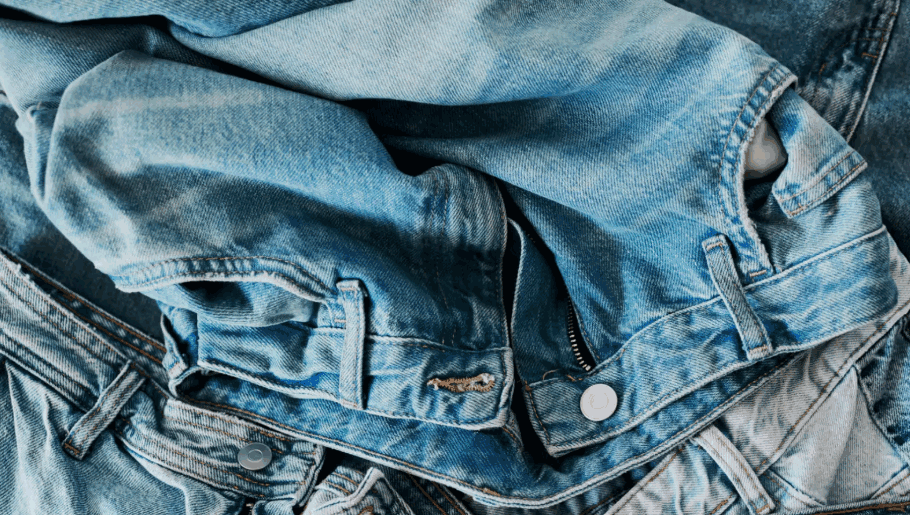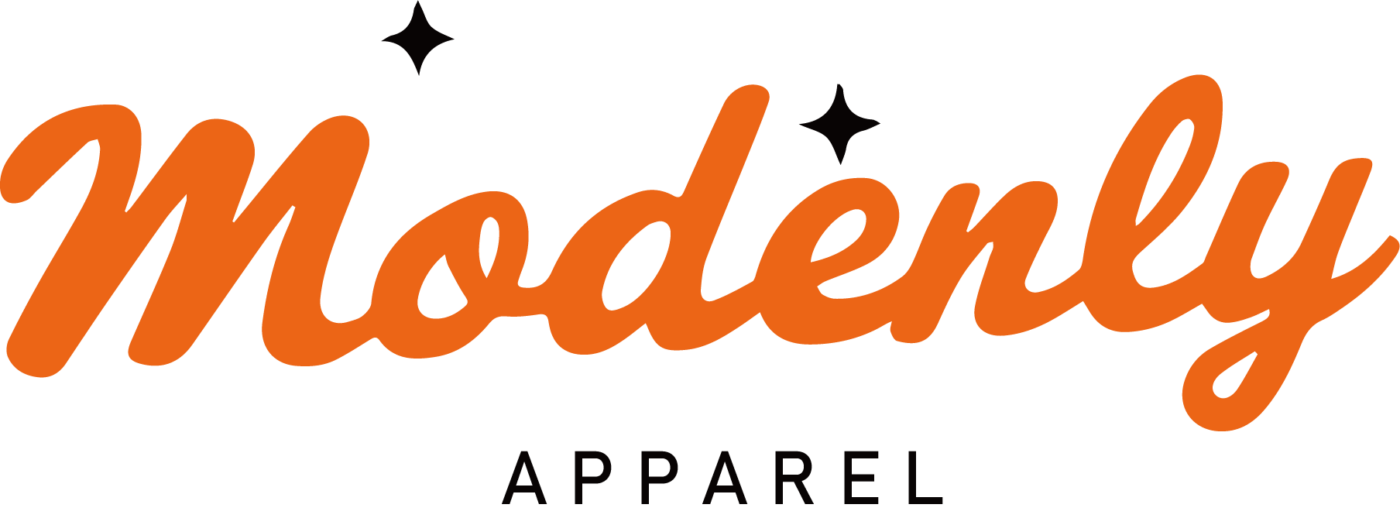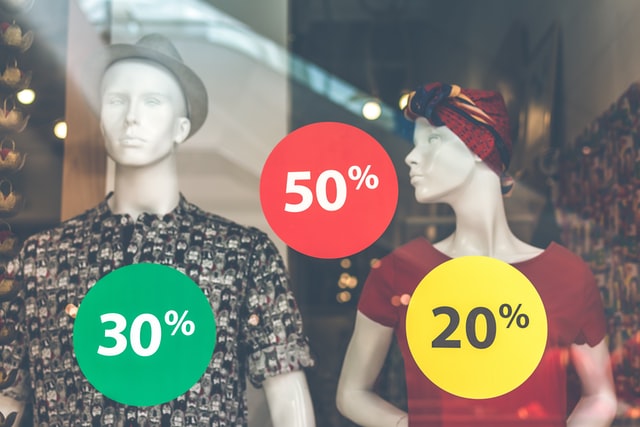Em MODENAMENTEA nossa empresa, a S&P, é especializada no fornecimento de ganga de alta qualidade e personalizada para empresas que procuram elevar as suas ofertas. Quer esteja a lançar uma linha de moda de marca própria ou a expandir a sua coleção de vestuário por grosso, o nosso compromisso com a qualidade artesanal e os preços competitivos garantem que obtém o melhor valor. Trabalhamos em estreita colaboração com os fabricantes para fornecer ajustes à medida, tecidos de primeira qualidade e soluções de produção escaláveis-tudo a preços grossistas imbatíveis.

A ganga para mulher evoluiu muito para além das opções normais de prateleira. Com o aparecimento de Calças de ganga personalizadas para mulheresOs retalhistas de moda, as marcas de boutique e os grossistas têm agora a oportunidade de satisfazer a procura dos clientes por ganga única e bem confeccionada. Mas como garantir que está a obter a qualidade certa a um preço que maximiza o lucro?
A aquisição de calças de ganga personalizadas a granel implica desafios - encontrar fornecedores fiáveis, escolher o tecido certo e equilibrar o custo com a qualidade. Neste guia, vamos explicar tudo o que precisa de saber sobre calças de ganga personalizadas por atacado para mulheresdesde a seleção de materiais de primeira qualidade até à negociação de melhores condições com os fabricantes.
Compreender a qualidade dos jeans personalizados
Qualquer grande linha de calças de ganga por medida baseia-se em três pilares fundamentais: excelente escolha de tecidos, trabalho minucioso e ideias de design criativas. Ao comprar calças de ganga personalizadas para mulheres, os consumidores inteligentes têm de ir além das aparências e efetuar controlos de qualidade exaustivos. Quer se trate de ganga com ourela em bruto, misturas elásticas ou algodão orgânico, a composição do tecido afecta diretamente a durabilidade e o conforto; os tecidos de primeira qualidade têm normalmente tramas mais apertadas e melhor retenção da tinta. A mão de obra especializada garante que cada par resiste ao desgaste regular, preservando a sua forma, mostrando áreas de tensão reforçadas, costuras de precisão e acabamentos consistentes. A colocação estratégica de bolsos, a colocação de costuras agradáveis e as lavagens adaptáveis - entre outros pormenores de design cuidadosos - ajudam a tornar as calças esteticamente atraentes e funcionalmente confortáveis. Especialmente nas transacções por grosso, é crucial pedir amostras de tecido, verificar a qualidade de construção dos artigos de amostra e confirmar os procedimentos de controlo de qualidade do fabricante. Lembre-se de que, no mercado competitivo atual, a satisfação do cliente depende do fornecimento de calças de ganga que não só tenham um aspeto fantástico, mas também mantenham a sua qualidade ao longo de muitas utilizações e lavagens, promovendo assim a fidelidade à marca e a repetição das compras.
Seleção de tecidos: Algodão vs. Misturas vs. Ganga Sustentável
O tecido de ganga é o coração de qualquer par de calças de ganga, e a escolha do material certo faz toda a diferença na conforto, longevidade e preço. Os três principais tipos de tecidos de ganga utilizados no fabrico de calças de ganga personalizadas são:
- 100% Ganga de algodão - Esta opção clássica proporciona uma sensação robusta e estruturada com uma estética intemporal. É durável e resistente ao desgaste, mas as calças de ganga de algodão puro podem não ter a elasticidade necessária para estilos modernos e ajustados à forma.
- Ganga elástica (misturas de algodão e spandex ou de algodão e poliéster) - Estas misturas oferecem uma maior flexibilidade, tornando-as perfeitas para calças de ganga slim-fit, skinny e de cintura alta. Estas peças adaptam-se ao corpo, mantendo a sua forma ao longo do tempo, o que as torna as favoritas dos consumidores que gostam de estar na moda.
- Ganga sustentável (algodão orgânico, fibras recicladas, misturas de Tencel) - As marcas com consciência ecológica estão a adotar o denim sustentável para satisfazer a crescente procura de moda ética por parte dos consumidores. Estes tecidos reduzem a utilização de água, eliminam os produtos químicos nocivos e satisfazem as necessidades dos consumidores. mercado crescente de compradores preocupados com o ambiente.
Construção e costura: a durabilidade é importante
Um par de calças de ganga bem feitas define-se pela sua costura, reforços e técnicas de construção. Ao avaliar as calças de ganga personalizadas por grosso, tenha em atenção o seguinte:
- Costuras com pesponto duplo e bolsos reforçados Certifique-se de que as calças de ganga não se desfiam ou rasgam após algumas utilizações. A costura inferior é um grande sinal de alerta, indicando uma fraca durabilidade.
- Rebites e tachas nos pontos de tensão adicionam uma força extra às zonas de maior desgaste, como os bolsos e as presilhas dos cintos. As calças de ganga sem estes reforços tendem a desgastar-se muito mais rapidamente.
- Fechos de correr vs. botões - Um fecho de correr YKK de alta qualidade ou um fecho de botão duradouro fazem toda a diferença na satisfação do cliente e durabilidade.
Ajuste e personalização: Oferecer os estilos certos
Uma das maiores vantagens do calças de ganga personalizadas para mulheres é a capacidade de atender a diversos tipos de corpo e preferências de estilo. Porquê vender as mesmas calças de ganga que todos os outros? Com uma marca personalizada, pode criar uma linha de ganga de assinatura que os clientes reconhecem e em que confiam! As calças de ganga a granel que apenas oferecem tamanhos padrão podem afastar potenciais clientes. Em vez disso, considere fornecer:
- Opções de tamanhos inclusivos desde o tamanho pequeno ao tamanho grande. A uma gama mais alargada de tamanhos leva a uma maior retenção de clientes e a menos devoluções.
- Vários estilos de ajuste tais como skinny, perna direita, boyfriend, mom jeans e cortes de perna larga. Compreender as tendências do mercado e as preferências regionais ajudá-lo-á a armazenar os produtos mais vendidos.
- Caraterísticas de personalização como costuras exclusivas, desgastes, bordados ou marca de distribuidorque permitem à sua marca destacar-se num mercado competitivo.
Toques finais: Lavagens, desgaste e pormenores
As calças de ganga personalizadas não são apenas uma questão de ajuste e de tecido.os retoques finais definem o seu aspeto final e atrativo. Os fabricantes de ganga de qualidade superior oferecem uma gama de opções de lavagem e pormenores de design que influenciam os preços e a procura dos consumidores.
- Lavagens clássicas - Opções como o índigo escuro, o azul médio e a lavagem clara satisfazem as diferentes preferências dos consumidores.
- Acabamentos envelhecidos e vintage - Os joelhos rasgados, as bainhas em bruto e os efeitos de jato de areia conferem carácter às calças de ganga, tornando-as ideais para o público mais jovem e focado nas tendências.
- Tratamentos de amaciamento e pré-encolhimento - Estes asseguram o conforto desde a primeira utilização e minimizam o encolhimento após a lavagem, um problema comum em ganga de baixa qualidade.
Encontrar o fornecedor grossista certo
Aquisição de produtos de alta qualidade calças de ganga personalizadas para mulheres no todoqualidade do tecido para eficiência de produção e flexibilidade de preços.
Fabrico nacional vs. fabrico no estrangeiro: Prós e contras
Uma das primeiras decisões que terá de tomar é a de trabalhar com fabricantes nacionais ou adquira as suas calças de ganga personalizadas em fábricas no estrangeiro. Cada opção tem vantagens e desvantagens distintas:
Fabrico no estrangeiro (por exemplo, China, Turquia, Bangladesh, Vietname) é conhecido por custos de produção mais baixos e capacidade de produção de grandes volumes. Muitas das maiores marcas de ganga do mundo dependem de fábricas no estrangeiro para produzir calças de ganga acessíveis e orientadas para as tendências. No entanto, desafios como prazos de entrega mais longos, barreiras de comunicação e direitos de importação devem ser tidos em conta na sua decisão.
Indústria nacional (por exemplo, EUA, Canadá ou Europa) oferece envio mais rápido, comunicação mais fácil e melhor controlo de qualidade. No entanto, o custo por unidade é muitas vezes significativamente mais elevado devido às despesas de mão de obra e de material. Se der prioridade a produção ética e aprovisionamento sustentávelSe a sua marca for uma marca de produtos, as opções nacionais podem estar mais de acordo com os valores da sua marca.
Factores-chave a avaliar num fornecedor
Depois de ter selecionado uma região, o passo seguinte é avaliação de potenciais fornecedores. Tenha em conta estes factores:
- MOQ (Quantidade mínima de encomenda): Alguns fabricantes exigem grandes encomendas iniciais, enquanto outros oferecem mínimos mais flexíveis. Escolha um fornecedor cujo MOQ esteja de acordo com a dimensão da sua empresa.
- Capacidades de personalização: Assegurar que a fábrica pode acolher marcas, etiquetas privadas, costuras especiais, desgastes e lavagens únicas para diferenciar as suas calças de ganga da concorrência.
- Capacidade de produção e prazo de entrega: Podem satisfazer a sua procura sem atrasos? Um fornecedor fiável deve ter prazos de entrega eficientes e um calendário de produção claro.
- Qualidade da amostra: Pedir sempre amostras de pré-produção antes de efetuar uma encomenda em massa. Isto ajuda a avaliar tato do tecido, ajuste, costura e acabamento geral.
- Reputação e comentários: Verificar testemunhos de clientes anteriores, certificações da indústria e normas de controlo de qualidade para verificar a credibilidade.
Precisa de um fabrico de vestuário fiável? Entregamos a tempo, sempre!

Repartição dos custos: Como obter os melhores preços por grosso
Preços por grosso para calças de ganga personalizadas varia em função de múltiplos factores, desde seleção de tecido para encomendar volume. Uma estrutura de preços bem negociada garante margens de lucro saudáveis mantendo os padrões de alta qualidade. A compreensão destes componentes de custo ajudá-lo-á a tomar decisões de compra informadas.
Factores que influenciam a fixação de preços
- Taxas de envio e importação: Os custos de transporte podem variar consoante a escolha de frete aéreo (mais rápido, mais caro) ou frete marítimo (mais lento, económico para grandes encomendas). Considerar direitos e taxas de importação no cálculo dos custos finais.
- Custos de tecido e material: Tecidos de qualidade superior como algodão orgânico e ganga com ourela custam mais do que as misturas normais de algodão e poliéster. As opções sustentáveis tendem a ter custos iniciais mais elevados, mas atraem compradores preocupados com o ambiente dispostos a pagar um prémio.
- Personalização e marca: Adição bordados, lavagens personalizadas, desgaste ou ferragens exclusivas aumenta os custos de produção. No entanto, estes pormenores diferenciam as suas calças de ganga dos produtos do mercado de massas e justificam preços de retalho mais elevados.
- Volume de encomendas e descontos para grandes quantidades: A maioria dos fornecedores oferece preços diferenciados-Quanto maior for a encomenda, menor será o custo por unidade. Se a sua empresa tem procura previsível, assegurando um contrato a longo prazo com um fornecedor pode fixar melhores taxas.
- Trabalho e fabrico Localização: Fábricas na China, Bangladesh e Vietname geralmente têm custos de mão de obra mais baixos em comparação com Fabricantes americanos ou europeus. No entanto, as preocupações éticas e direitos de importação pode compensar as poupanças.
Aumentar o seu negócio com calças de ganga personalizadas
Depois de ter obtido com êxito uma calças de ganga personalizadas para mulheres, o passo seguinte é dimensionar a sua marca para um sucesso a longo prazo. O crescimento exige forte marketing, preços estratégicos e diversificação de produtos para se manter na vanguarda num mercado de ganga competitivo.
Branding e posicionamento para o sucesso
- Defina os objectivos da sua marca proposta de venda única (USP)-quer se trate de artesanato de primeira qualidade, tecidos sustentáveis ou tamanhos inclusivos.
- Utilização redes sociais, parcerias com influenciadores e marketing de conteúdos para aumentar o conhecimento da marca.
- Oferta lavagens de edição limitada ou colecções sazonais para criar urgência e impulsionar as vendas.
Expansão da oferta de produtos
- Introduzir casacos, calções ou saias de ganga a condizer para aumentar o valor da encomenda.
- Experimentar com pormenores da moda como bainhas desfiadas, patchwork ou ganga colorida para manter as colecções frescas.
- Considerar Parcerias B2B com boutiques ou retalhistas de comércio eletrónico para escalar a distribuição.
Conclusão: O futuro da moda: O papel dos jeans personalizados para mulheres
A combinação ideal de individualidade, conforto e estilo é personificada pelo denim personalizado para mulher. Estas calças ultrapassam os constrangimentos da produção em massa, satisfazendo as necessidades específicas das mulheres, proporcionando uma experiência genuinamente personalizada. Investir em ganga personalizada é uma decisão sensata para as empresas que não só as distingue como também promove relações mais fortes com os seus clientes.
As calças de ganga personalizadas para mulher são um fator de mudança na indústria da ganga, quer seja uma marca de moda que procura expandir a sua linha de produtos ou um cliente que procura o ajuste ideal. Estas calças estão preparadas para revolucionar o conceito de ganga, combinando tecnologia, atenção ao pormenor e artesanato.

